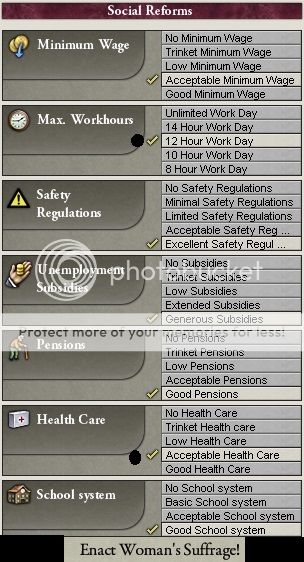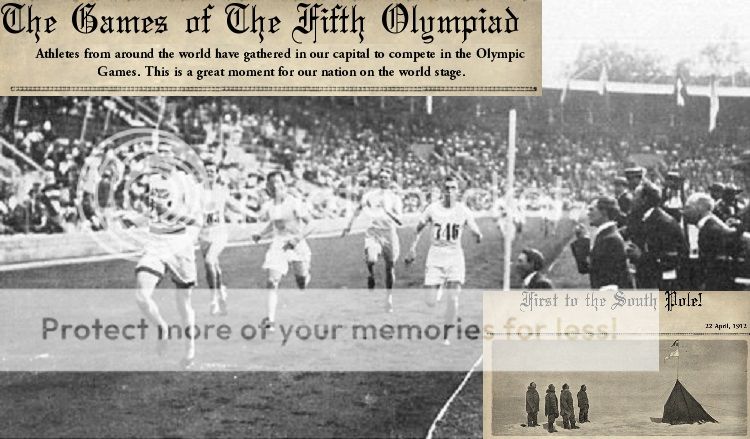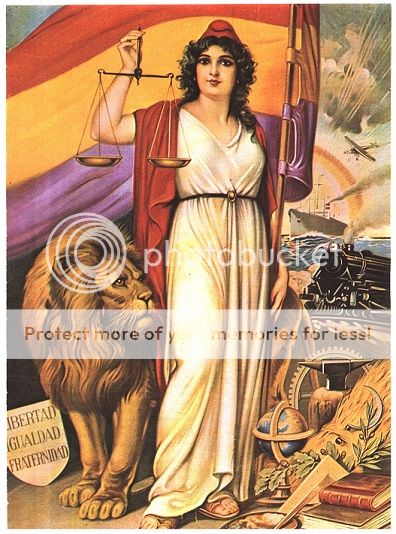The German Century?
1909-1914
Following the years of prosperity in the latter 1900s, Germany was greeted by a far less stable era following the re-election of the Stegerwald led government in 1909. As the German Republic reached out to reclaim its position as Europe’s dominant power – and a nation of worldwide significance it contributed to a series of violent conflagrations across Central and South-East Europe as well as the Middle East whilst at the same time suffering through economic troubles at home.

The troubles afflicting the lands to the South-East of Germany would begin in August 1909 in Constantinople. There the Young Turk Revolution, in truth a military coup, would bring the balance of power in South-East Europe and the Middle East into question. The Turkish Revolutionaries were a group of military men who opposed the stridently pro-Italian conservative elites, supporting secularism, Westernisation and democratic constitutional reform – believing only deep changes could save the Ottoman Empire from collapse. The Young Turks had been associated with Germany prior to the Revolution, and these ties only grew greater and the new government in Constantinople and the German Republic grew swiftly with the Germans establishing an alliance and investing in Turkish industrial projects in exchange for the opening of the Ottoman market to German exports.
As the vast Ottoman Empire appeared to fall under German influence, Germany’s regional rivals – the Russians and Italians – moved to oppose German hegemony and the new Turkish regime. However, the conflict between Russian hopes of striking against the Ottomans in order to splinter the Empire and secure its own dominion in the Balkans and Eastern Anatolia, and Italian hopes of retaining the territorial integrity of the Empire, but restoring its supporters to power, made cooperation between Rome and Moscow impossible. This lack of cooperation allowed for both parties to be humiliated separately over the course of 1910.

First came the Russians who unleashed the familiar battle cry of the liberation of the Christian peoples of the Empire – especially the Orthodox Christians of the Balkans. However, unlike in the past, Russia sabre rattling was not supported by widespread rebellion in any part of the Empire as little international sympathy supported the Russian call to war. Instead, the Young Turk government, which had established close relations with the Armenian Revolutionary Federation, supported the stoking of revolt in Russian ruled Armenia and throughout the Caucuses. As Russian forces attempted to forcefully put down the revolt potential Russian allies, notably Italy, remained aloof whilst a united front of the Ottoman Empire, Germany and Great Britain demanded that Russia grant independence to Armenia and withdraw its calls for war with the Ottomans. Faced with insurmountable odds the Russians backed down – their bid to undermine the Young Turks’ regime ending in embarrassing failure.

In August war broke out between Romania and the Ottoman Empire as the Young Turk government looked to take advantage of the humiliation of Russia – Romania’s traditional ally – and press their claims over the Lower Danube. Sensing their best opportunity to overturn Germany’s newfound dominance in the region Italy declared war on the Ottoman, Germany following suite by declaring war on Italy whilst the British opted for maintaining neutrality on the condition that no other powers intervene in the conflict. The German army was still relatively small in comparison to its pre-Great War levels, even with limited expansion in 1909; indeed the Italians could field slightly more troops prior to the mobilisation of reservists and bring them to the front rapidly. This early advantage allowed the Italians to invade the Tyrol, Steirmark and Slovenia and even contemplate an advance towards Vienna at the height of their penetration into German territory in late September.
However, the conflict rapidly turned against the Italians as soon as the two opposing armies entered large scale engagements. German forces were quite simply vastly superior, more technologically advanced, better organised, commanded by superior leaders and including a many more Great War veterans than the more youthful Italian military. Within a short few months the Italian invasion was crushed as German troops began to occupy parts of Alpine Italy. At the same time, the Turks had been triumphant in the Balkans – capturing Bucharest. On January 18th 1911 peace was signed with Romania and Italy – the South Tyrol was annexed by Germany (much to the pleasure of nationalists) whilst the Ottomans gained control of the Romanian coastline. Germany stood exultant, for the first time since 1896 she could proudly claim to be the dominant power on the European continent, perhaps the world.

During this same period the government was able to pass through a number of reforms. In 1909 the coalition’s pledges to improve healthcare provision – in cooperation with religious institutions, especially in the Catholic South – and shorten the maximum working day passed through with relative ease. The question of Women’s Suffrage, on the other hand, was more controversial. Women’s Suffrage had been an issue prominent amongst the left wing milieu for many years; however it had never featured prominently in party manifestos. However successful publicity campaigns by ‘Suffragettes’ through 1909-1911 brought the issue into the public eye with the SPD putting the full weight of its influence behind the mainstream campaign whilst the Communists attempted to organise more radical actions. Within a relatively short period of time and overwhelming majority of the Reichstag had lined up behind the idea of Women’s Suffrage – women being granted equal voting rights to men in November 1911 with Socialist, Communist, Liberal, Populist and Centrist members all voting in favour.
With its reform agenda progressing and international triumphs (none more crucial than the restoration of South Tyrol) the government enjoyed a level of prestige few German governments had approached for decades. Its security was helped by the instability of its political opponents and their failure to coalesce into a viable, unified opposition. Between the legislative election in 1909 and the Presidential election in 1912 only the DAP’s Dietrich Eckert maintained his position as party leader amongst the opposition parties – and this despite heavy pressure from young rising stars with the DAP like Anton Drexler and after 1911 Adolf Hitler (who had been called up as a reservist during the war with Italy) for a change in leadership. Indeed, barring the DAP; all the oppositional parties had taken steps towards greater radicalism since 1909.
The KPD had ejected Clara Zetkin and promoted the son of the co-founder of the SPD – Karl Liebknecht – into the position of party leader as they shifted back towards a more radical course, refusing any cooperation with Social Democrats and Populists and once again speaking about revolution. The DNVP rid itself of Bülow in 1911, as the long term party leader called for a readjustment in DNVP policy following the defeat of Italy – claiming that the DNVP must now come to terms with the existence of the Republic and abandon its implacable monarchism. With Bülow bringing the party’s identity into question he was ejected from the leadership and replaced with a staunch traditionalist and military man in the form of Alfred von Tirpitz. Finally, the growing strength of the free-marketeers within the DDP made the left leaning leadership of Friedrich Naumann untenable – the anointed successor of Eugen Richter resigning as leader in 1910 in favour of the industrial magnate Walther Rathenau who was more acceptable to all sections of the party.

With the opposition divided and the coalition going from strength to strength, Adam Stegerwald was easily re-elected for a second seven year term as President in 1912 – becoming the first President to win election in the first round having been backed by all three coalition parties.

The feel good factor permeating through German society reached its height over the spring and summer of 1912 as first German explorers became the first to reach the South Pole, leading to endless praise of the glory of German science and exploration, and then Berlin played host to the Fifth Olympic Games with Germany topping the medals table to boot. The feeling of satisfaction was not to last, within months of the Olympics Germany was being faced with a new swathe of crises both internal and international that would threaten her restored dominance.

Economically Germany’s growth rate remained strong and steady after 1909, although slightly lower than during its mid-Noughties height. However, the country would face far more serious economic problems during this period. It was widely believed that by the end of the 1900s there was little room for expansion in the supply of traditional industrial goods upon which German industry had been built. Yet with urban populations still growing new industries were needed in order to avoid a new unemployment crisis that the coalition parties had taken such pride in avoiding. This led to a huge programme of state investment in modern industries with a heavy emphasis on electronics.
Disturbingly, although profits were initially impressive the rapid expansion of the modern industrial sector of the German economy saw supply outstrip demand – leading to very heavy losses, especially in the large telecommunications industry. On top of the struggles of the modern industries, many traditional industries were struggling to maintain profitability – requiring the assistance of state subsidies to avoid liquidations that would leave hundreds of thousands unemployed. From late 1910 until 1912 spending on industrial subsidies quadruples, causing a budgetary crisis and the government began to accumulate debts. It was not until after the summer of 1912 that the government unleashed its programme for tackling the industrial crisis.

The response to the crisis came directly from circles of economists associated with the Free People’s Party, the policy of ‘economic cooling’ would see the party, and especially its leader Adam Stegerwald, risk a great deal as they angered both industrial and labour interests, not to mention their long term allies the Social Democrats. Economic cooling involved an immediate rise in the level of taxation – with those lower and middling incomes experiencing a more than proportional rise in taxation (having enjoyed remarkably low levels of taxation since 1905), a cutting off of industrial subsidies to the least profitable industries with exceptions only made in areas in which such policies would lead to endemic unemployment, an immediate pay freeze for all government employed workers with employers encouraged to follow suite, the refocussing of state economic investments so that funds were to be supplied only to the most profitable industries (notably electronic and machine parts industries). The policy hit working class communities hard leading to a wave of widespread industrial action from the autumn of 1912 through 1913, on the ground Communist and Social Democrat leaders played a prominent role in the actions with the SPD wavering in its support of the Populist led government throughout the period. However, the policy did appear to be successful in its immediate goals as industrial subsidies plummeted to only a little above their 1910 levels by mid-1913, with the policies of economic cooling being gradually eased off from thereafter.

Just as the government faced problems on the economic front, a new realignment amongst the oppositional parties threatened to create a viable alternative to an FVP led governing regime. The re-alignment began in an unexpected manner with the murder of DDP leader Walther Rathenau in what was believed to be an anti-Semitic attack against the Jewish industrialist. Whilst the assailant was never caught the paper hat he adorned marked him out as a DAP sympathiser. In the aftermath of the incident the DDP and DNVP were to take unexpected steps towards one another. The anti-Semitic response of Tirpitz to the incident caused many within the party to question his ability to lead the party back to power – leading to his eventual removal from the position in late 1913 and replacement with Gustav Stresemann. The new leader came not from the Conservative tradition of German politics but the National Liberal – supporting liberal economic ideas, a downplaying of the DNVP’s anti-Semitism and retention of the party’s commitment to monarchical restoration he represented a particularly radical turn for the old party of reaction and a clear turn away from any potential alliance with the German Workers’ Party. As the DNVP became more open to moderation the DDP appoint co-founder and prominent banker and economist Hjalmar Schacht as its new leader, a man whose politics appeared far closer to Stresemann’s than Stegerwald’s.

Internationally it appeared to many that the Young Turk Revolution of 1909 marked the beginning of a new age of democratic change for Europe. Following on from the Ottoman example in 1911 the autocratic Spanish monarchy was brought down and replaced by a new Republican government, followed the same year by Portugal also adopting a Republican constitution. In 1912 a new constitution was issued in Bohemia and Moravia, a country previously under an authoritarian regime, which guaranteed the rights of Czechs and Germans equally and opened up the country’s political system. Then in early 1913 a revolution swept Hungary that forced radical democratic change. Seeing this as a positive change in its nearby ally, Hungary had been chronically afflicted by instability since the Great War, Germany supported the change. In was a decision many in Berlin were soon to regret deeply.

In November 1913 Hungary’s first democratic elections produced a stunning result as the Communist Party, aligned with a radical social democrats as well as peasant groups demanding the redistribution of aristocratic lands, secured victory and moved to form a new government. As well as nationalising foreign, mostly German, industrial interests the Hungarians sought to form diplomatic ties with Belgium, the Netherlands and Scandinavia – threatening Germany’s geopolitical position. Worse yet, in the Ottoman Empire 1909’s hopes of reform had been crushed in many parts of the Empire as the Young Turks’ Turkish nationalist positions increasingly undermined any hopes for autonomy or reform in favour of the non-Turkish majority of the Empire. From the autumn of 1913 a large rebellion broke out in the Arab provinces of Syria, Palestine and Mesopotamia with a Kurdish revolt threatening Anatolia itself. As the Ottoman army in Syria was scattered in December revolts began to break out in the Balkans and the government in Constantinople sent an official request to Germany for military support. With an international crisis mounting the government opted to dissolve itself and call new elections, hoping to secure a new mandate.












